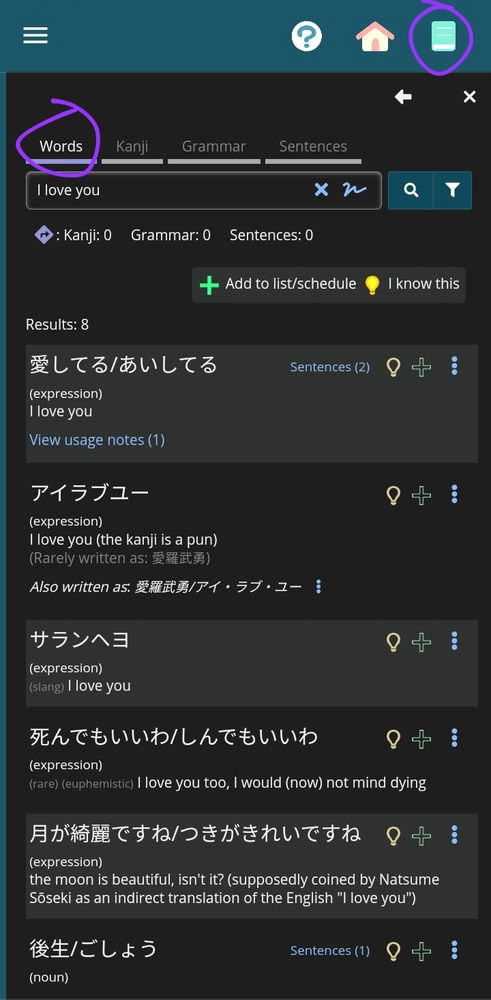掲示板 Forums - How to say "I love you" in Japanese?
Top > 日本語を勉強しましょう / Let's study Japanese! > Anything About Japanese Getting the posts
Top > 日本語を勉強しましょう / Let's study Japanese! > Anything About Japanese
Hello, I've been wondering for a while now about how to say "I love you" in Japanese. I've heard multiple words being used to describe loving someone ot something, such as 大好き, 愛する/愛しています, etc.
But I never really knew which words to use depending on who you are talking to, and all the other different rules when it comes to formality and all similar to that. I'm not sure if anybody will see this question or even care to answer it, but if you do, thank you very much!
It is "complicated".
If you are interested in it, you could read this blog: https://www.berlitz.com/blog/i...
Awhile ago I found out that the Japanese equivalent to 'I love you' would be 'あいしてる' (aishiteru) or if you want to go the long way it would be わたしはあなたがだいすきです (watashi wa anata ga dai suki desu) although thats kind of a mouth full  hope I could help! -Ryozu(Mahitoes)
hope I could help! -Ryozu(Mahitoes)
If I recall correctly, 愛してる is only really used in weddings and proposals, though in anime and such it's used a little more frequently.
好き and 大好き are the ones common in normal confessions, typically like Aくんが好き or A先輩が大好きです, following the common things of ommitting the first person pronoun and referring to the other person by name.
Also the phrase 月がきれいですね apparently has a similar meaning? I don't really know when you'd use that one though... nor do I understand how it came about, but that's a separate thing.
Also the phrase 月がきれいですね apparently has a similar meaning? I don't really know when you'd use that one though... nor do I understand how it came about, but that's a separate thing.
I guess you use it, when you are outside (or at least are able to see the moon) together.
Think about this awkward moment of silence and than you say this to your loved one. While both are looking at the night sky (and maybe trying to reach out for each other's hand). It sounds cute and romantic, right? If the loved person stays it is a yes and if not it is a no or maybe not yet.
It's an indirect way of saying that you like someone. It is part of the Japanese culture to be indirect.
You can look it up is the dictionary in the top right corner of your homepage.

You can look it up is the dictionary in the top right corner of your homepage.

...I don't think any of those are remotely common, besides the two that were brought up earlier...